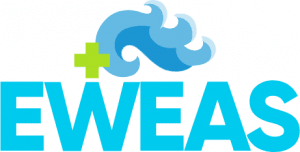The fish farming sector has undergone significant development over the last half century, which has led to it now accounting for almost half of the world’s fish supply. It is expected that, due to the constraints currently faced by extractive fishing, a significant percentage of the expected increase in future fish demand will be met by aquaculture production.
The progressive increase in environmental awareness that we have experienced in Europe has led the aquaculture sector to incorporate the principles of sustainability from the earliest stages. Within the field of energy and water efficiency, however, the different proposals focus on acting on the main existing horizontal technologies, such as pumps or filtering systems, which, although efficient and quickly amortized, represent an improvement that is soon diminished by the appearance of new inefficiencies in other points of the installations, or by productive changes that require new revisions of the conditions of energy acquisition.
The high energy consumption required by these industries for their operation, as well as the fact that many of these facilities are located far from urban centers, is an additional difficulty in terms of availability of energy resources.
For all these reasons, there is a growing demand for a minimum level of training in the energy field, mainly from a practical and utilitarian approach that allows both production managers and technical teams in charge of the control and maintenance of farms to detect and act appropriately in the face of inefficiencies that may occur in the different systems.
Likewise, these teams must have the tools to evaluate the real savings and amortization of the different initiatives to implement renewable or more efficient technologies, in the search for a lower weight of the energy component in production costs and to contribute to reduce energy demand, carbon emissions and wastewater.
EWEAS project objectives
To meet these growing needs, we propose the development of a training program aimed at providing technicians and managers of aquaculture farms with the necessary skills:
- Detect significant plant consumption and establish its optimal working range.
- Perform and interpret energy consumption measurements in the main equipment.
- Know and understand the different concepts of billing and contracting of energy supplies, in order to facilitate decision making when contracting them.
- Determine which are the most relevant energy consumption indicators and their current values, as well as to be able to recognize the variations that can be found, as an indication of improvements or problems that occur in production.
- Identify opportunities for improvement in the production process.
- To be able to evaluate the foreseeable impact on these indicators of energy or water improvement proposals that may arise in the future, as well as to be able to evaluate their economic feasibility.
Beyond the realization of concrete action proposals, leading to the realization of individualized evaluations plant by plant, the aim is to provide the operational managers of each center with the capacity and tools necessary for the continuous control of the plant. This control and evaluation work is included, as well as planning, needs detection and communication with the rest of the company’s areas.
The EWEAS project is funded by the Erasmus+ program under Grant Agreement 2018-1-ES01-KA202-050473.
